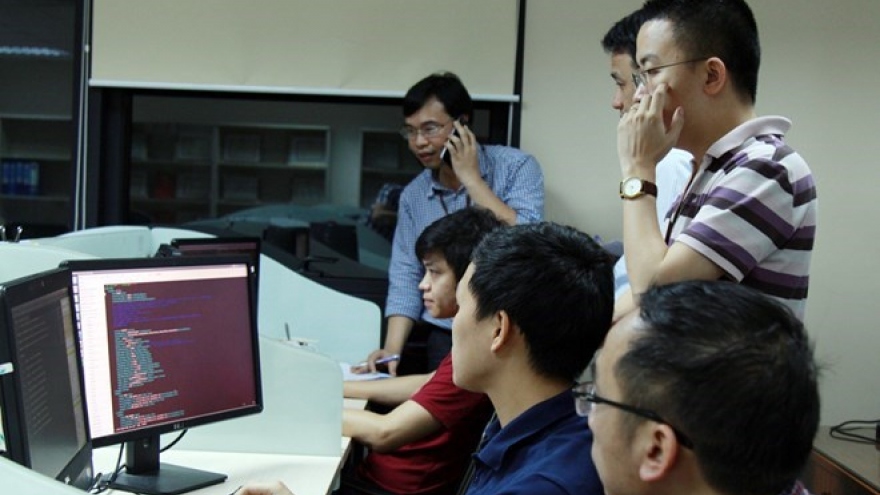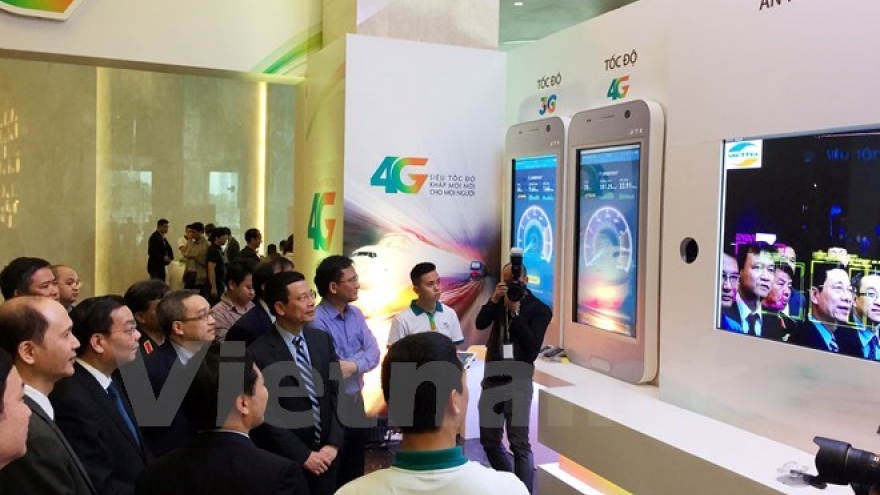A lionhearted Vietnamese mobile network brand
For the first time, a Vietnamese company has successfully developed a real-time billing system (OCS) for telecommunication networks, a product similar to banks’ core banking system, but larger in scale and complexity.
The billing system is considered the heart of telecommunication companies because it contains all data about customers, products, services, and business policies information. Amdocs, Ericsson, and Huawei are the only network providers in the world right now selling billing systems to other networks and they are also the three biggest corporations in OCS research and development.
The beginning
Until 2011, Viettel had been using a billing system from outside partners for more than seven years. However, Viettel’s engineers and business team were not satisfied with the system. With an extremely rapid growth of network usage in Vietnam, the company’s billing system constantly needed to be upgraded and modified.
Nguyen Van Vinh, Viettel’s R&D senior engineer, said that each modification to the billing system would take months because it would have to be proposed to the partner for review and finding the solution took a while. Meanwhile, Viettel’s needs were extremely urgent, especially when the company wanted to expand operations overseas.
Since the beginning, Viettel had to replace its billing system every three years and each time would take around one year to adapt to the new one. The OCS systems bought from outside providers were slow to adapt to Viettel’s billing requirements and had many difficulties.
Therefore, Tong Viet Trung, vice president of Viettel Corporation, decided to make their own billing system. He said, if Viettel depends on outside providers, it will be mired down in unresolved difficulties. Therefore, the company needed to create its own technology, despite the fact that the corporation would have to start from scratch.
 |
Vietnamese people can do anything!
When Viettel started operating in Vietnam, its customers were mostly from the low-income segment who usually checked their account balance after each call, putting heavy demand on Viettel’s OCS, a task it was unequal to. On the other hand, Viettel’s engineers gained a lot of experience to create a suitable OCS.
Within a few years, Viettel successfully developed many new services with its partners, such as call barring, message blocking (the first customer protection service in Vietnam), homephone service (local service call), and HappyZone (area billing system), among others. These first successes proved that Viettel is able to create its own system.
However, during a visit to the partner headquarters, Viettel’s six engineers were shocked to see the scale of the Research and Development Department.
“I was a little overwhelmed when I came to their R&D centre. It was like a city,” said Le Van Hien, vice director of Viettel Network Technologies Centre. “When I asked for advice about our OCS project, which at that time was operated by 20 engineers, the representative laughed and said it would need 2,000 engineers, working continuously for four years,” he added.
 |
The Vietnamese engineers were stunned and discouraged, however, they found out after three months of research that making an OCS is difficult but not impossible. They also decided to work in a different way than their partners.
Growing with each failure
In 2011, when the project began, Viettel’s engineers worked under the philosophy that “a small group can reach big.” Each member of the project would handle different tasks and work around the clock.
After two years, OCS 1.0 was published and put into operation with a capacity of one million subscribers per site in East Timor, the smallest but fastest-growing international market of Viettel. One year later, Viettel introduced version 2.0, expanding the capacity to eight million subscribers per site.
Nguyen Hoang Long, Viettel’s vice director of Viettel Software Centre, said that although the team had many failures during the development stage, they learned from them and grew more confident in developing the perfect system. He could not remember how many times they have failed, but the most important thing was to keep the enthusiasm of the team always burning high.
 |
However, although the team was never discouraged in working, they met so many dead ends causing members to suffer from severe stress and depression and at times forcing them to leave the project entirely. Viettel’s OCS 2.0 was even rejected by its close partner in Cameroon. Furthermore, as there had been no technological breakthrough, the OCS could not compete with other competitors’ products.
In September 2015, Viettel started developing the next version of the OCS. Despite the fact that the number of blueprints had reached more than 1,000 at the time, making development more difficult, the team was strengthened with a line-up of fresh, young, and creative engineers.
In April 2017, vOCS 3.0 was successfully introduced and used to manage 90 million subscribers in Vietnam. The new OCS has a capacity of 24 million people per site, which is the biggest in the world, doubling the capacity of the second largest OCS billing system.
According to Nguyen Van Hung, Viettel’s head of IT Division and Global Operations Centre, the new OCS can filter spam messages 10 times better than other systems on the market, which helps reduce the workload of engineers. In addition, it takes only four months to transfer to the new system, which is only a third of previous time requirements, and there is little to no problems. This helps introducing new packages and business policies to customers quicker and more efficiently.
The dream comes true after 17 years
The new system has been successfully deployed in six countries, including East Timor, Cameroon, Burundi, Tanzania, Peru, and Vietnam, with a total of 140 million subscribers, making Vietnam one of the top countries in billing system technology.
The new system only needs three to five engineers to operate instead of the previous 50, while the amount of time is only four months to adapt to the system. The new system saves Viettel around $70 million a year. However, money is not the most important benefit.
Pham Tuan Anh, deputy director of the OCS project, said that the new real-time billing system helps Viettel become faster and more accurate in handling business inquires, where data is one of the most important aspects of the telecommunications business.
The new system makes service payments easier for people who are sharing a mobile account with their internet plans. In addition, the new system can calculate charges for different services on the same mobile SIM card. For example, it can differentiate between a company account and a personal account. In the future, there will be many new features provided to vOCS 3.0.
Nguyen Manh Hung, president of Viettel Corporation, said that the most special thing about Viettel’s OCS system is its creators. He confided: “When starting in the telecom business, Viettel considered each customer a separate entity that needs to be listened to and served separately.” After 17 years, this goal finally came true thanks to vOCS.3.0
With vOCS 3.0, Viettel will have a new marketing and business plan that is significantly different from thousands of other service providers in the world. It is the opportunity for Viettel to expand overseas.
As for the vOCS 3.0 production team, the next task is to successfully deploy the system in every country where Viettel is doing business. More importantly, a Vietnamese product will be sold to other operators in the world, helping Vietnamese technology become recognisable.



